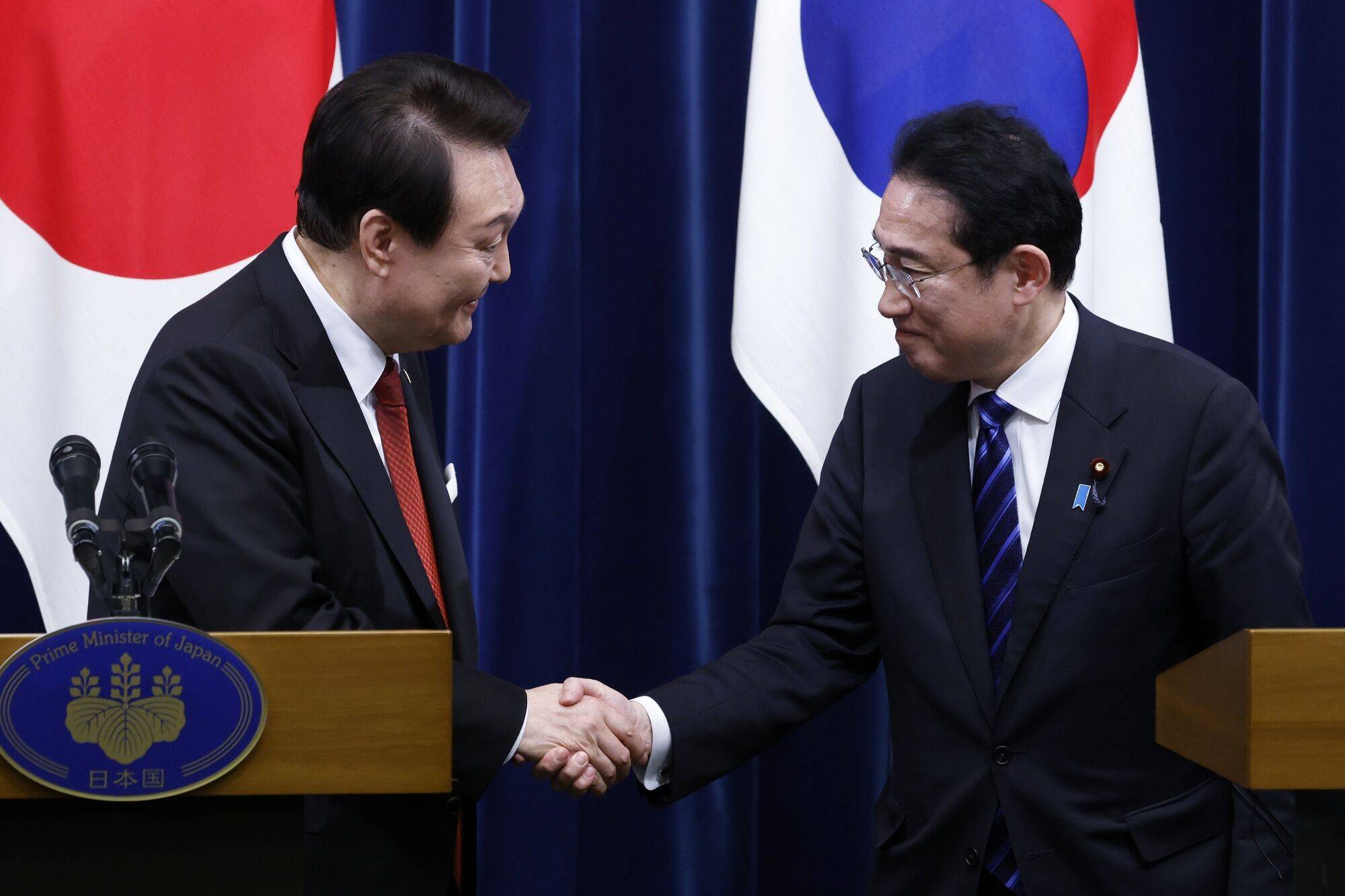South Korea’s Defense Ministry has initiated a process to normalize a key military intelligence-sharing pact with Japan following an agreement between Prime Minister Fumio Kishida and South Korean President Yoon Suk-yeol during their breakthrough summit on Thursday.
The South Korean Defense Ministry said it sent a letter to the country's Foreign Ministry asking for measures to normalize the General Security of Military Information Agreement (GSOMIA) deal, the South’s Yonhap news agency reported late Friday, citing unidentified officials.
Japan's Defense Ministry on Friday welcomed the stable implementation of the pact, but the exact measures Seoul was seeking were unclear.

















With your current subscription plan you can comment on stories. However, before writing your first comment, please create a display name in the Profile section of your subscriber account page.